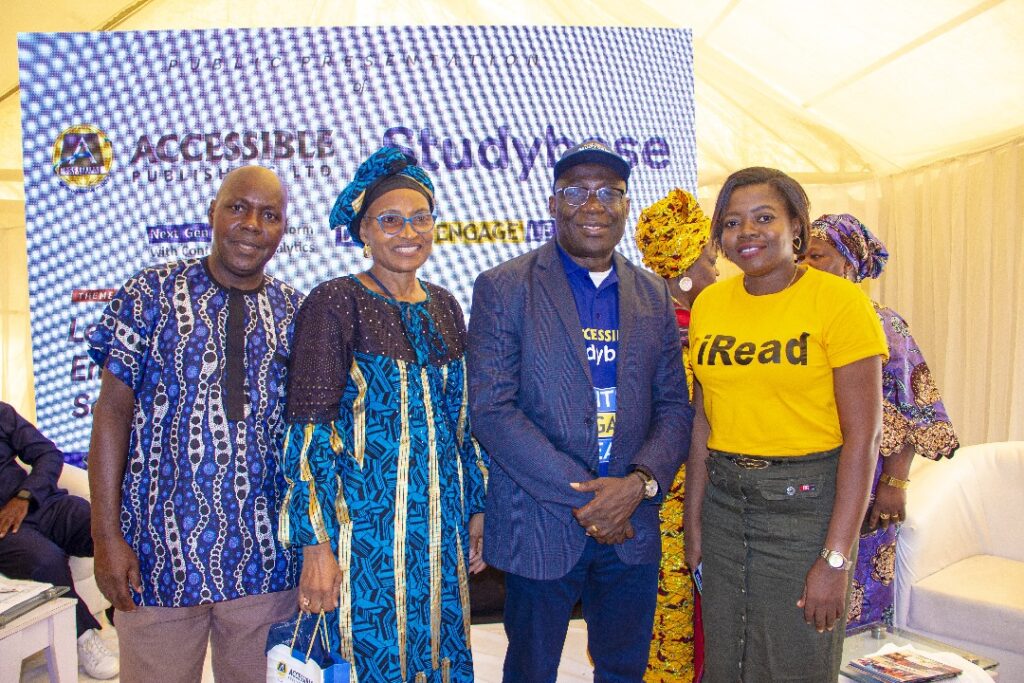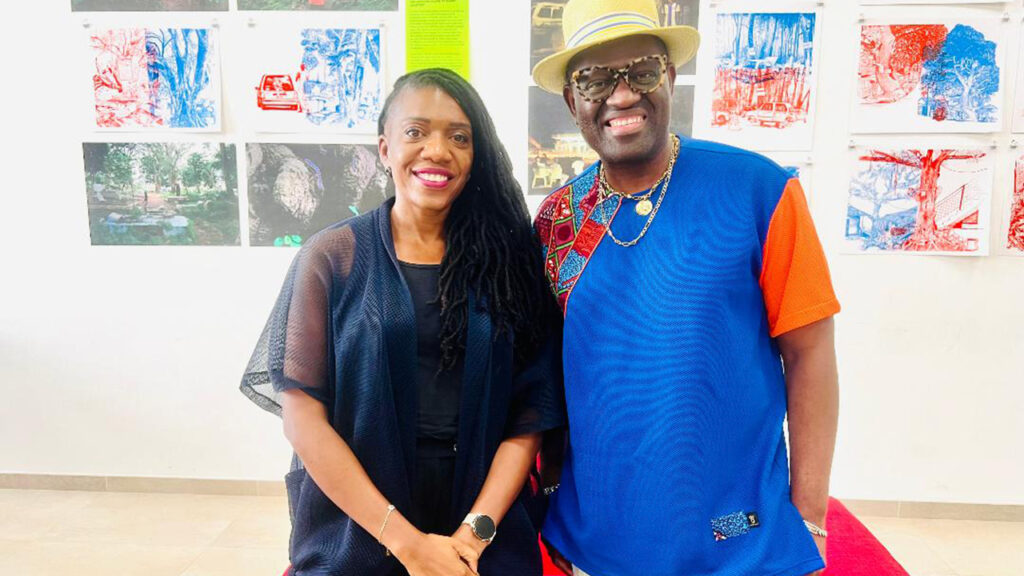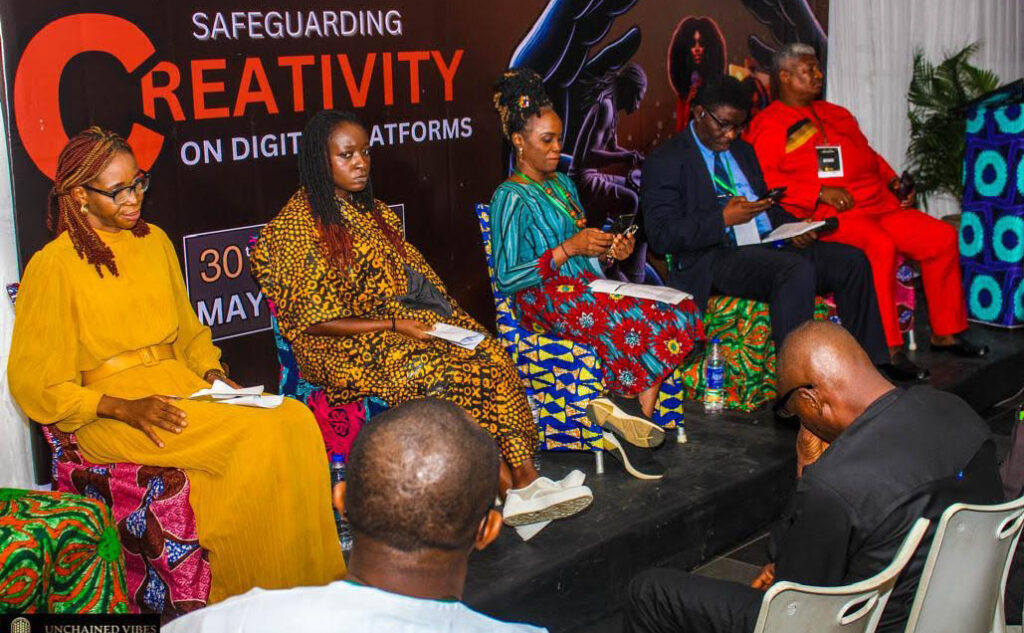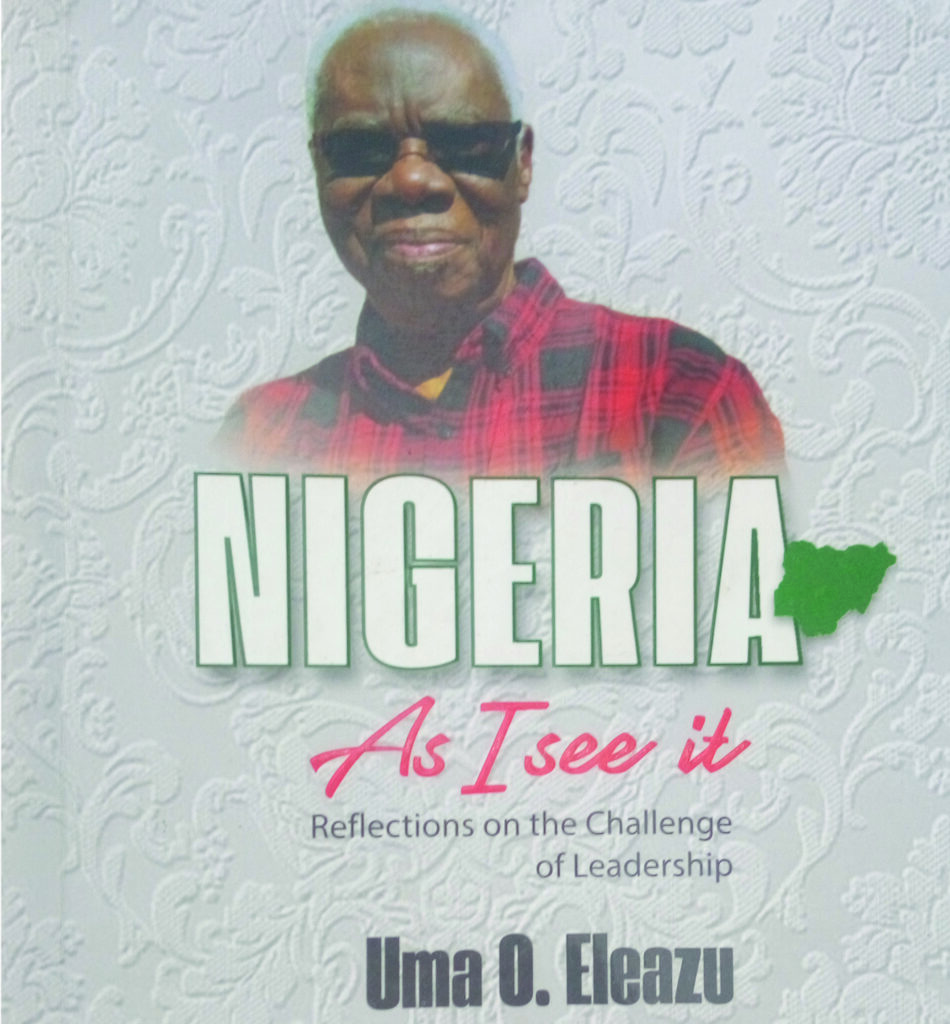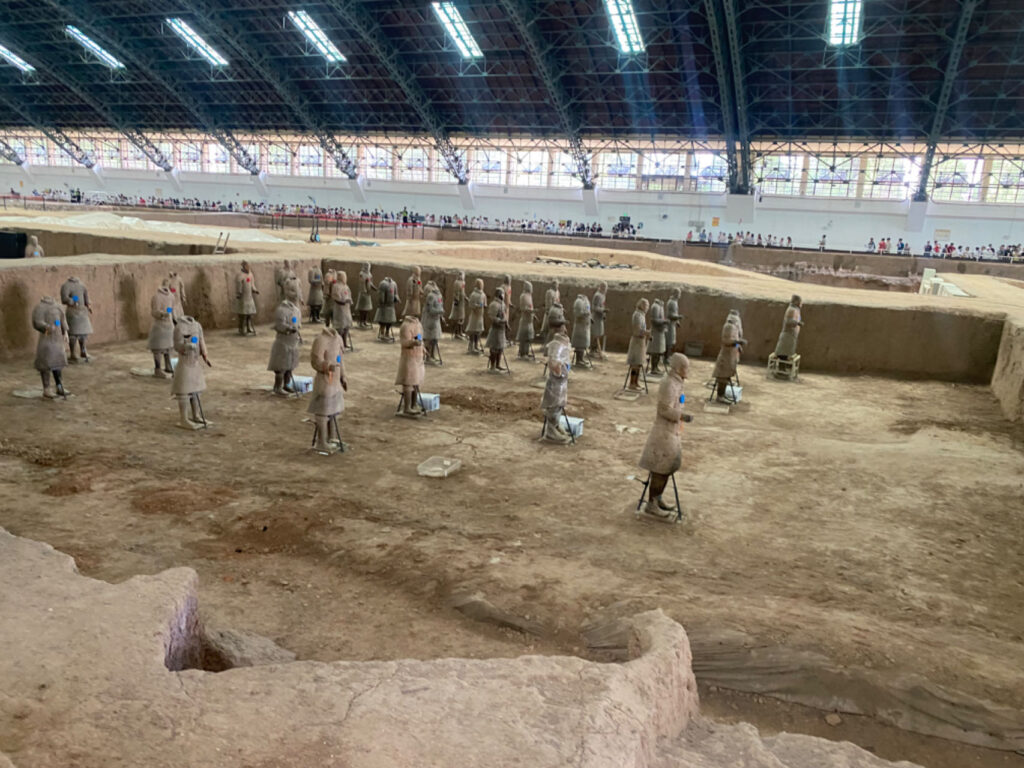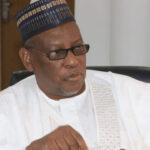
PAWA, UBEC, Others Endorse Accessible Studybase Platform
The Vice-Chancellor, Bamidele Olumilua University of Education, Science and Technology, Ikere-Ekiti, Professor Olufemi Victor Adeoluwa, has called on government to ensure that every school has a functional library, which is adequately furnished, equipped and stocked and is manned by a trained librarian or assistant librarian.
He also called on the Nigerian Book Fair Trust to put more effort in organising activities that would enhance the reading culture of Nigerians, adding, “there should be festivals and reading competitions.”
He spoke at the 23rd International Conference of the Nigeria International Book Fair, which held last week in Lagos.
In his keynote address, ‘Universal Basic Education and the Book Ecosystem: Setting the Agenda’, he said challenges of the book ecosystem in Nigeria, just like many other ecosystems, are many. Pointing to finance, he said it is a major problem in Nigeria and publishing is not an exception. “As it is expensive and obtaining loan from banks is not an easy task. The publishing houses certainly have limited access to distribution networks and book stores especially in the rural areas. This affects their reach and by implication, also effective learning in the rural areas. Though the solution could have been found in advancement in digital publishing and online platforms, the rural areas also lack electricity most of the time and other gadgets needed to effectively access digital books for learning,” he said.
The vice chancellor said, “with depreciation in the value of the Naira against the Dollar in recent times, replacement and maintenance of publishing equipment became more difficult and this also had its effect on publishing. Again, textbooks produced are not colourful enough to attract readers like some foreign based books printed on glossy paper. This is not unconnected with the need to bring down the cost of production.”
Adeoluwa continued, “writers also have their challenges as marketing patterns and forces in Nigeria make it imperative to have a national outlook in the authorship of certain books so they could be acceptable all over the country. This has brought emergency partnerships which were not prepared for and which could tamper with the flow and style of writings in some of the books. Piracy is also a major challenge which not only affects the writers but also the booksellers and the publishers. It is devastating in its effects but it is not as endemic as it had been before now.”
According to him, “libraries are poorly funded in Nigeria. Most schools have no functioning libraries and where they exist; neither do they have furniture nor books. Trained librarians are not also engaged by the schools. Moreover, most schools do not have specific times for students to use the library and neither do the teachers give assignments that would make the students visit the library before attending to them. Most school libraries do not also have digital resources where online books can be accessed.”
He said reading culture is still very poor and this owe to lack of interest warranted by widespread poverty and the inadequacy of functional libraries where quiet reading could be done. Moreover, many of the recommended texts for students do not pass through any readability test before recommendation as this is made probably by patronage or connection. Therefore, many of the basic education students read books that are not suitable for them. One readily comes to mind, that is, a primary computers textbook that had on its cover the danger sign of the skull and the crossed humerus. That could be regarded as violence on the pupils.”
On the book ecosystem, he said it is central to the success of the Universal Basic Education programme in Nigeria. “This is because it has the capacity for fostering intellectual discourse and enhancing the quality of learning in the schools. The ecosystem comprises the publishing industry, the writers and scholars, the libraries, wholesalers, book sellers/retailers, literary organisations and the reading culture (parents and pupils/students),” he said.
One of the main features of 2024 Book Fair that many attendees would remember was the launch on May 9, 2024 of the innovative educational tool called Accessible Studybase Learning Management Platform.
Designed, developed and managed by the Ibadan-based Accessible Publishers Ltd, it is a web application that will significantly enhance teaching and learning in today’s modern classrooms and school administration generally.
Students, teachers and school administrators will find it an enhanced tool that eases school work in teaching and learning and educational management in realtime. The launch had as theme, ‘Leverage Technology to Enhance Learning and Reduce School Operational Cost’ and targeted at ‘Next Gen: School Platform with Content and Analytics’, and latches on the catch phrase, ‘Digitise. Engage. Learn’ as drivers.
While introducing Studybase e-learning App platform to the audience, the MD/CEO of Accessible Publishers Limited, Mr. Gbadega Adedapo, said since the unfortunate advent of COVID-19 four years ago he saw the need to leverage on technology as the future of book publishing and has been looking for ways to better tap into ICT and maximise its benefits to the industry.
It was precisely for this reason that he rebranded his publishing outfit formerly called Rasmed Publications to Accessible Publishers Ltd in 2021, with a vision to make his products that include e-book, audio books, braille, virtual learning, App, etc more inclusive and accessible to all strata of the learning environment.
“As an organization, which prides herself in making contents accessible across all formats, we are excited to introduce to you our customised curriculum-based learning management software in Nigeria called ‘Accessible Studybase Learning Management Platform’,” he enthusiastically informed his audience. “This virtual platform incorporated a teaching series for all the subjects in our various textbooks as approved by the Nigerian Educational Research and Development Council (NERDC), which is the educational regulatory body in Nigeria.
“Over the past few months, we have engaged highly qualified and seasoned teachers to virtually teach all subjects as presented in our textbooks from elementary classes to Senior Secondary School classes, all in the bid to make learning and development easier for students and to augment physical teaching deficiencies for students both within and outside the school period.”
Adedapo further explained what Accessible Studybase entails as an e-learning platform, and also gave five reasons why a platform such as Accessible Studybase has become an imperative given the apparent deficiencies easily noticed in Nigeria’s educational system, particularly, poor teaching and learning environments, poor remuneration for teachers and lack of adequate teaching personnel to cater for the large student population.
According to him, “it is important to understand our inspiration behind this project. You’d agree with me that reading is ingrained in our daily lives whether we realise it or not. A significant portion of our daily communication happens through our social media engagement, text messages, emails, and messaging apps. Reading and learning are involved in our professional and academic lives and in navigating our environment. In all of these, we realise that most of our reading and learning process nowadays are 80 per cent in digital form; that is, through our respective gadgets. Therefore, we thought it will be great to package our contents and book products to fit into what people are mostly interested in – the gadgets!
“Like the proverbial expression of Arab origin states, ‘If the mountain does not come to Mohammed, Mohammed will go to the mountain’, which means, ‘if things aren’t going your way, you’ll have to adjust to the way they are.’ In our own organisation, we live by our name – Making Books Accessible Across all formats (e-book, audio books, braille, virtual learning, etc), and this new product – Accessible Studybase is a testament and proof of what is possible. The platform is capable of Interactive multimedia contents (PowerPoint slides, audio clips, images, etc) with captions and illustrations.
Adedapo, however, assured: “We still have physical books, but the e-learning platform provides a leverage and serves as additional resource from other experts’ viewpoints to further boost our knowledge, and to augment our curriculum-based textbooks. Aside the content and virtual classes, the platform is very robust and comprehensive. It is loaded with an end-to-end school management software with modules such as ‘enquiry/admission module’, ‘students’ profiling’, ‘teachers’ profiling’, ‘documents’ hub’, ‘school fees’, ‘management/online payment gateway’, ‘attendance management’, ‘calendar’, teachers leave’, ‘library’, ‘expense management’, ‘inventory’, ‘‘exams result’, ‘question bank’, ‘session/class/groups’ and ‘lesson planning’. Others are ‘online exams’, school timetable’, ‘340 feedback’, ‘custom reports’, ‘analytics’, ‘salary management with biometrics’, ‘messaging and SMS integration’ and ‘compatibility with assistive technologies (AI)’.”
Other features of Studybase e-learning App, according to Adedapo, include assisting “students to prepare ahead of BECE, NECO and WAEC examinations either with or without the supervision of teachers. There is a robust question bank for revisions, assignments, tests, and other practical exercises, and markings are automated. The contents are curriculum compliant in line with the standards of the Nigerian Educational Research and Development Council (NERDC). Students can have access to further learning materials from other teachers/instructors’ perspectives. The platform is subscription based (yearly, termly, or monthly) and it is for the use of schools, teachers, parents and individuals.”
Adedapo also introduced three of the authors on the stables of Accessible Publishers Ltd. They are Mrs. Bolaji Ladipo, “who is passionate about educating children in indigenous languages, with delightful Yoruba children’s contents, with eight series of Yoruba Dun Yato Fun Awon Omode ati Alakoobere. Also, we have the iRead Series for pre-nursery textbooks on social education, numeracy, knowledge and Literacy all written by Funmi Ilori, the founder of iRead Mobile Library. She is also the CEO of iRise Model Schools. We also have the author of Brides of Infidels and Igho Goes to Farm by Mr. Anote Ajeluorou, a reputable journalist, creative writer” and publisher of online news platform for arts and culture reporting, TheArtHubNg (www.thearthubng.com).
The president of Booksellers Association of Nigeria and chairman of Nigeria International Book Fair Trust, Mr. Dare Oluwatuyi, President of Nigeria Publishers Association, Chief Cyril Uchenna Anioke, President of National Library Association, Pastor Dominic Omokaro and Secretary General of Pan-African Writers Association and author also on the stable of Accessible Publishers Ltd, Dr. Wale Okediran, Deputy Director at Universal Basic Education Commission (UBEC), Abuja, Mrs. Grace Samuel, all witnessed the launch of the innovative App.
They also commended Mr. Adedapo and his team for designing and launching Accessible Studybase Learning Management Platform, calling it revolutionary. They also praised the foresight of Mr. Adedapo for the innovation that is capable of changing the face of education in the country, and pledged to promote it, especially Mrs. Samuel, who promised to recommend the App development skills of Accessible Publishers’ team to UBEC, noting that Nigerians have the right skills in all spheres, and tasked government agencies to patronise local content and skills rather than consult foreigners for similar undertakings that could be handled by Nigerians.
Accessible Publishers’ Digital Manager and developer of Accessible Studybase Learning Management Platform, Mr. Dapo Adebayo, highlighted the unique selling points of the App in resolving the numerous challenges schools in the country currently face that inspired the App development. The App, according to Adedapo, comes especially handy “Where there is no teacher, we have got you covered, student can subscribe to practice questions and prepare for examinations, individuals can subscribe to home schooling and learning and personal development, schools can sign up for fee, over 2,000 library access materials, and personal tutorial sessions.”
Adedayo further said the unique selling points of the App include, “Where there is no teacher, application and content are curriculum based, access to quality education regardless of geographical location or time constraints, bridging the gap in educational access, flexibility to learn at students’ own pace and convenience, promoting self-directed learning and autonomy, engagement with interactive content that has been tested in various schools already, with feedbacks obtained and adjustments made to make it work seamlessly.”

